Modern progress runs on information. Every business, no matter the size or industry, depends on the constant movement of data to function, serve customers, and grow. The more digital the world becomes, the more vital it is to protect that information. Data security defines a company’s reputation, reliability, and resilience.
“ Protecting data means protecting the trust that keeps relationships, systems, and innovation moving forward. “
Organizations now view data protection as part of their overall strategy for growth. A well-secured digital environment allows new ideas to develop without unnecessary risk. The companies that invest in strong protection frameworks don’t slow down innovation, but strengthen it. In this new era of business, security and progress move hand in hand.
Strengthening Trust Through Secure Information Systems
Trust is the currency of the digital age. Businesses earn it when customers and partners know their information is handled responsibly. Secure systems build that confidence by maintaining transparency, reliability, and accountability in every transaction. Strong frameworks safeguard not just data but also a company’s credibility in the eyes of the public.
Modern organizations often rely on data products to maintain this trust. Such systems help gather, process, and protect information while allowing for accurate insights and real-time responses to risk. A secure infrastructure backed by dependable data management strengthens every aspect of operations. When trust becomes part of the system’s design, security stops being an afterthought and becomes an advantage.
Core Principles of Modern Data Safety
Data safety begins with three essential principles: confidentiality, integrity, and availability. Confidentiality keeps information private, integrity maintains its accuracy, and availability ensures authorized users can access what they need when they need it. Together, they form the foundation of every modern security strategy.
Businesses that follow these principles create systems built for stability and adaptability. The digital world changes quickly, and safety practices must evolve with it. A structured yet flexible approach to protection helps companies stay resilient against both internal mistakes and external threats.
Role of Human Awareness
Human understanding remains one of the strongest lines of defense. Employees interact with data every day, often serving as the gatekeepers of security. Awareness, good judgment, and consistent habits can stop many threats before they escalate.
“ A workforce that understands its role in protection adds real strength to a company’s digital framework.”
Training programs and clear communication build a sense of shared responsibility. When everyone in the organization knows how to handle information securely, the likelihood of errors or breaches drops significantly.
Managing Risks in Cloud-Based Environments
Cloud technology has redefined how companies operate, offering convenience and scalability that traditional systems cannot match. However, the shared nature of cloud environments requires careful management. Protecting information stored in remote servers means securing both access and transmission.
Organizations that adopt cloud systems responsibly create a balance between accessibility and protection. Choosing trusted providers, maintaining oversight, and updating policies regularly help reduce risks. When managed effectively, cloud platforms become a powerful extension of a secure and flexible business ecosystem.
Reducing Vulnerabilities
Consistent evaluation is one of the most effective ways to stay ahead of digital threats. System audits reveal weak points, outdated protocols, and potential entry paths for attackers.
” A structured review process keeps the entire network aligned with the latest security standards and helps identify issues before they become serious problems.”
Auditing also builds transparency. Leaders gain a clear understanding of where protection stands and how to strengthen it. Regular checks encourage accountability across teams and departments. Continuous improvement, backed by proper monitoring, keeps organizations prepared for new challenges in a constantly shifting digital landscape.
Global Standards in Information Protection
Every business operating in the digital world must follow established global security standards. Regulations such as GDPR, CCPA, and ISO frameworks set expectations for how organizations collect, use, and safeguard information. Compliance builds credibility and shows commitment to responsible digital practices. Following these standards also minimizes legal and reputational risks that can arise from mishandled data.
Adapting to the frameworks involves ongoing effort. Regular reviews, updated policies, and staff awareness ensure that businesses remain aligned with changing regulations. Companies that stay informed and transparent about compliance create a secure environment for customers and partners, reinforcing trust and accountability across borders.
Reinforcing Data Integrity
Integrity defines how dependable information truly is. Inaccurate or altered data weakens the foundation of decision-making and can result in costly mistakes. Maintaining integrity means ensuring that data remains consistent, reliable, and protected from unauthorized changes throughout its lifecycle.
Safeguarding integrity requires strong validation processes and real-time tracking. Encryption, backup systems, and access controls all play essential roles in preserving authenticity.
Implementing End-to-End Encryption
Encryption has become one of the most reliable tools for protecting information in motion and at rest. End-to-end encryption means that data remains private from the moment it’s sent until it reaches its intended destination. Unauthorized users, including potential attackers, cannot read or alter the content without access to encryption keys.
Strong encryption practices reassure customers and partners that their information is handled with care. Businesses that implement robust encryption across systems reduce exposure while also demonstrating a commitment to confidentiality.
Supporting Remote Work Environments
Remote work has expanded the reach of modern organizations, but it also introduces new vulnerabilities. Employees now access company systems from various networks and devices, which increases the need for consistent protection. Secure access points, strong authentication, and device management policies create safe conditions for remote collaboration.
Promoting security awareness among remote workers is just as critical as installing protective tools. Clear communication, training, and regular updates help employees maintain safe habits no matter where they work.
Evaluating New Technologies
New technologies bring opportunities but also fresh risks. Every innovation, from AI-driven tools to cloud-based systems, should be reviewed with security as a priority. Businesses that evaluate technology through a protection-first mindset reduce exposure and maintain control over their data ecosystems.
A responsible evaluation process examines performance, data handling, privacy policies, and long-term stability.
“ Choosing technologies that meet high security standards builds confidence within the organization and among stakeholders. “
Digital Trust Drives Business Success
Digital trust connects customers, partners, and organizations through reliability and transparency. When people believe their information is safe, they engage more openly and confidently. Trust becomes a long-term asset that shapes reputation, loyalty, and growth.
Building digital trust requires honesty, protection, and communication. Companies that explain how data is used and demonstrate visible care in its handling earn stronger relationships. Every security choice, no matter how technical, ultimately supports the human side of business success.
Data security forms the backbone of modern progress. Protecting information protects innovation, collaboration, and trust—the elements that drive every successful organization. The digital world demands constant awareness, adaptability, and investment in strong security frameworks. Businesses that view protection as an opportunity rather than a burden lead with confidence.










